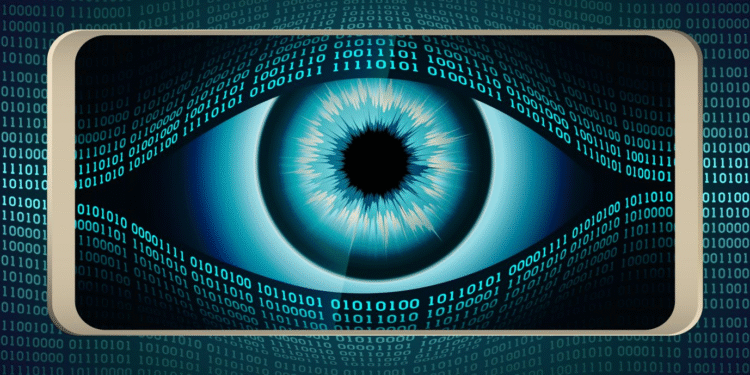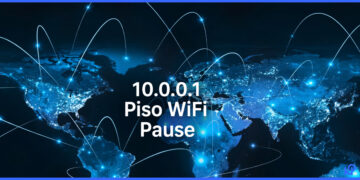Ever felt like the ads you see online know a little too much about you? That nagging suspicion? It’s not paranoia. It’s pattern recognition, powered by big data. Billions of clicks. Infinite scrolls. A mosaic of your digital self assembled piece by piece. Big data privacy, as a concept, is collapsing under the weight of data gluttony—and someone, somewhere, is always watching.
Pause for a moment.
Think about this: 328.77 million terabytes of data are created every single day (Statista, 2024). What percentage of that is yours? More than you’d guess. Every like, every search, every “I agree” on those endless terms of service—you’re handing out your identity like a deck of cards.
And the players? Tech companies. Governments. Advertisers. Even shadowy third-party brokers you’ve never heard of.
The Data You Didn’t Know You Gave Away
Let’s be honest. You probably expect Google Maps to know where you are. But did you know Google keeps a timeline of your movements unless you manually turn it off?
Surprised?
Here’s a fun one: Facebook can track you even if you don’t have a Facebook account. They call it “shadow profiling.” Sounds like sci-fi. It isn’t.
Online surveillance awareness is no longer optional—it’s survival.
Data trails aren’t always obvious. You log in to an online store. Browse a few products. Don’t buy. Hours later—bam! Ads for those very shoes flood your Instagram feed. That’s retargeting. But it goes deeper. Device type, time spent on page, even your scrolling speed gets harvested. It’s not just about what you click. It’s how you behave.
Behavior is data. And behavior sells.
Who’s Watching, Really?
There’s no single villain here. No man in a dark room stroking a cat. It’s a system. An ecosystem. Multiple entities hoarding your data like modern-day dragons.
Let’s break it down:
- Corporations: Collect for profit. Ad targeting. Product development. Predictive algorithms.
- Governments: Surveillance in the name of “national security.” Think NSA, PRISM, and other programs we only know about because of leaks.
- Third-Party Brokers: Sell your data like tomatoes at a market. Ever heard of Acxiom, CoreLogic, or Oracle Data Cloud? They’ve heard of you.
One 2022 study by VeePN revealed that the average American has data stored in 5,000 different databases. Did you ask for that? Probably not. Instead, just use the guide to VeePN Mac setup or for another device. There are now VPN apps for all popular devices.
Consent or Illusion?
Let’s talk about consent. Or rather, the illusion of it. Every website offers a pop-up now: “We use cookies to improve your experience.” Oh, do you?
The “Accept All” button is bright and clickable. The “Manage Settings”? Grey. Tiny. Buried in layers of complexity.
This is dark pattern design. It’s engineered to make you give up.
Even worse? Most data-sharing permissions are bundled. Agreeing to use a photo filter app might also mean granting access to your contacts, microphone, and GPS. Why does a calculator app need your location?
Because you are the product.
Big Data Privacy in Crisis Mode
Big data privacy isn’t just a buzz phrase. It’s a crumbling dam holding back a flood. We’ve moved past the age of information into the age of extraction. Personal data isn’t just collected—it’s weaponized.
Take Cambridge Analytica. Remember that? 87 million Facebook profiles. Harvested. Manipulated. Used to influence elections. That’s not just a breach—it’s a blueprint.
If you think, “I have nothing to hide,” think again.
It’s not about hiding. It’s about control. Whoever controls the data, controls the narrative.
Surveillance Capitalism: The Economy of You
Let’s say it flat: You are being monetized. Your preferences. Your weaknesses. Your late-night browsing habits.
What’s the price of your privacy? Turns out, not much.
Your data profile—age, gender, education level, browsing history—can be sold for about $0.0005 per individual data point. But multiply that by billions? It’s a trillion-dollar industry.
In 2023, global spending on data-driven marketing surpassed $400 billion. That’s your identity—packaged, analyzed, resold.
You didn’t notice? That’s by design.

Online Surveillance Awareness: A Call to Wake Up
So what do we do? Hide in the forest and throw our smartphones into a river?
Tempting. But unrealistic.
Awareness is the first firewall.
Here’s what you can actually do:
- Use privacy-focused browsers like Brave or Firefox.
- Use a VPN. You can also VPN free download Chrome, which will not affect your finances. However, privacy will improve significantly.
- Say no to unnecessary permissions.
- Don’t log in with Google or Facebook. Create separate credentials.
- Use end-to-end encrypted messaging (Signal, for example).
- Adjust privacy settings on every platform you use—yes, every one.
- Clear your cookies regularly.
- Consider a tracker-blocking extension.
These steps aren’t perfect. But they’re resistant. And resistance matters.
The Digital Panopticon: Watching Back
In 1791, philosopher Jeremy Bentham imagined a prison where inmates were always being watched, but could never tell when. He called it the Panopticon. Today, your screen is the tower, and you’re in the cell.
The trick? We’ve confused connectivity with freedom. You get convenience. Fast searches. Personalized ads. Seamless experiences. They get you. Is it worth it? Only you can decide. But don’t decide blindly.
Final Byte
We live in a world where attention is currency and data is gold. Your habits are monetized. Your digital footprint is a glowing beacon. And the watchers? They’re not hiding. They’re just… invisible.
Online surveillance awareness is no longer the luxury of the paranoid. It’s the responsibility of the informed.
So next time you click “I Agree,” ask yourself:
Who’s watching—and what do they want?
And maybe, just maybe, don’t agree so quickly.













